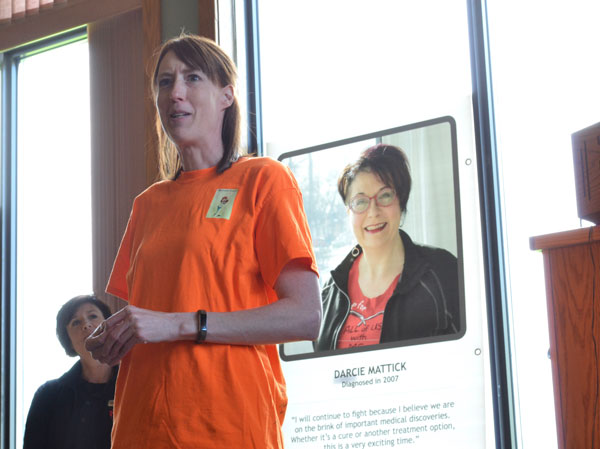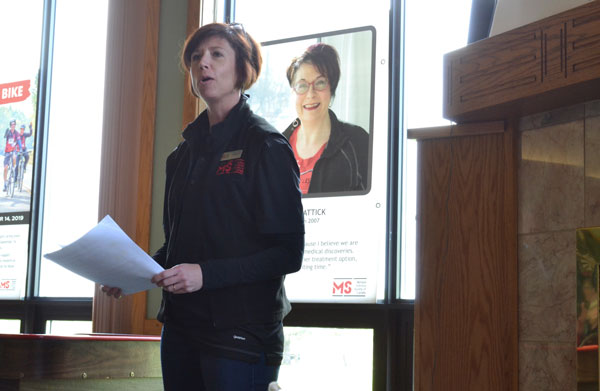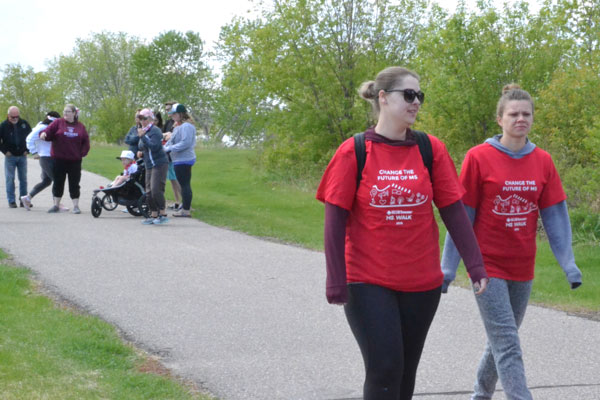
“Hopefully we’ll get that out there too—(that) people don’t just see it as a severe disability. There is hope.”
– Rhea Krakowetz, walk participant living with multiple sclerosis
Rhea Krakowetz has been participating in the multiple sclerosis (MS) walk in Prince Albert for the past few years—prior to that, it would have been difficult for her to do so.
Krakowetz was diagnosed with relapsing-remitting MS in 2015, which initially caused her to go numb from the chest down.
According to the MS Society of Canada, MS is an autoimmune disease affecting the central nervous system. It attacks the protective cover of nerves, which deters the body’s ability to transmit nerve impulses.
The most common symptoms are extreme fatigue, numbness, tingling, dizziness and cognitive challenges, but Erin Kuan with the MS Society of Canada said “Just like a snowflake, no two people who live with MS are the same.”
With the right treatment, Krakowetz has gained back her ability to walk, but the disease weakened her vision in one eye and she still struggles cognitively.
As her family watched, Krakowetz addressed the group of over 70 participants in the Elks Club.
“I hope all of you go out and find your silver linings, and thank you because you’re one of mine today.”
The room stood up and clapped as she gave a few hugs on the way back to her seat.
MS is the most common neurological disease affecting Canada’s young adults, with most being diagnosed between the ages of 20 and 49. About one in every 385 Canadians are living with the disease.
Saskatchewan, however, has the highest rate out of all the provinces and territories.
“Everybody you talk to knows somebody with it. They may not understand it necessarily,” said Krakowetz. “I think a lot of people just assume you’re going to be in a wheelchair…Now with all the new treatments, it’s slowing a lot of the progressions so I think we’ll have better outcomes. Hopefully we’ll get that out there too—(that) people don’t just see it as a severe disability. There is hope.”
Kuan has been with the MS Society of Canada for 20 years. She’s the president of the Manitoba and Saskatchewan divisions.

“What continues to inspire me is we see real change and real progress,” she said.
When the Prince Albert walk began 29 years ago, there were no disease modifying therapies for MS, which are treatments that slow down the progression.
Now, there’s 14 and counting.
This month, Saskatchewan added an MS treatment to the list of drugs in which it covers the cost.
“That’s largely because of the work that you do in your community raising funds. That’s how research happens and that’s how lives get changed, so please take pride,” said Kuan to the participants.

The walk is one of the largest gatherings of the MS community across the country.
Kuan said to have not only people who struggle with the disease, but also their supports come together is “a really powerful thing, to feel like you’re not alone.”
This year’s fundraising goal was $15,000. While the walk was taking place, $13,000 were raised for MS.

